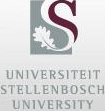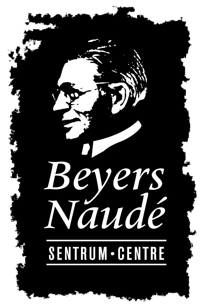




THE BYLAWS OF
THE Beyers Naudé Centre for Public theology
1. GENERAL
1.1 Name
Beyers Naudé Centre for Public Theology (hereafter called 'the Centre').
1.2 Status
The Centre is an institution for research and community interaction of the University of Stellenbosch (hereafter called 'the University') situated within the Discipline Group Systematic Theology and Ecclesiology (hereafter called 'the Discipline Group') and it reports to the Council of the Faculty of Theology (hereafter called 'the Faculty Board').
2. OBJECTIVES
2.1 General objective
The promotion of knowledge to the public arena in respect of the field of the role, task and responsibility of public theology, by means of research and community interaction.
2.2 Specific objectives
2.2.1 To undertake research on aspects of public theology in cooperation with experts inside and outside the University on a project basis.
2.2.2 To publicize the results of research, as well as the presentation of congresses, symposia and workshops, by means of national and international publications.
2.2.3 To assist in the generation of contributions for publications that pertain specifically to the Faculty.
2.2.4 To undertake research and furnish advice on a contract basis upon receipt of such requests by the Centre.
2.2.5 To promote cooperation between the Faculty and church communities in general, ecumenical organisations, national and international research and service institutions, as well as the public and private sector.
2.2.6 To offer training in the form of short courses, seminars and similar initiatives.
3. THE DIRECTOR AND OTHER STAFF
3.1 The staff
The staff of the Centre will consist of:
3.1.1 A part-time Director (hereafter called 'the Director') appointed from the ranks of the full-time staff of the Faculty.
3.1.2 When the Director is not available to fulfil tasks, the Executive of the Centre appoints a Deputy Director.
3.1.3 Part-time research staff who are appointed on an ad hoc basis to participate in specific projects.
3.1.4 Research, technical and administrative staff, as may be appointed by the University from time to time.
3.2 Director
Upon a recommendation by the Management Committee of the Centre, the Faculty Council appoints the Director for a three-year term of service. He/she has the following responsibilities:
3.2.1 to realize the objectives of the Centre,
3.2.2 to undertake and finalize projects that have been endorsed by the Management Committee,
3.2.3 the administration, guidance and supervision of the Centre's activities,
3.2.4 to liaise with the Faculty Council, the University and other organizations regarding issues that concern the Centre,
3.2.5 the financial management of the Centre in conjunction with the Management Committee or the Executive of the Management Committee,
3.2.6 to attend to any other matters that concern the Centre.
3.3 Temporary appointments and remuneration
3.3.1 Upon recommendations by the Director of the Centre, temporary appointments and remuneration pertaining thereto are effected by the University in accordance with the current University policy.
3.3.2 Claims for administrative and research expenditures, as well as board and lodging and travel expenses are paid from the Centre's funds in accordance with current University tariffs.
4. CONTROL STRUCTURE
4.1 Director
The Centre functions under the leadership of the Director (with responsibilities as described in 3.2) as a separate institution within the Discipline Group and plans its activities in close conjunction and cooperation with the Discipline Group.
4.2 Management Committee
The Centre is under the control of the Management Committee, which is composed of the following:
4.2.1 The Director or Deputy Director,
4.2.2 The Dean of the Faculty or his/her representative,
4.2.3 A lecturer in Public Theology/Ethics,
4.2.4 Two representatives of interested Departments from any of the other Faculties of the University, as appointed by the Dean in conjunction with the Faculty Council,
4.2.5 The Chairpersons, or their representatives, of the Discipline Groups Systematic Theology and Ecclesiology, Practical Theology and Missiology, and Old and New Testament,
4.2.6 A lecturer in Human Dignity,
4.2.7 The Chairperson of the Theological Students' Council or his/her representative.
4.3 Appointment of the Management Committee
The Dean appoints the Management Committee biennually in conjunction with the Faculty Council and appoints a Chairman (who may not be the Dean or the Director) from his/her own ranks.
4.4 Responsibilities of the Management Committee
The Management Committee is responsible for:
4.4.1 Determining the general policy of the Centre in conjunction with the Director,
4.4.2 Evaluating and approving new projects that must be implemented within the Centre,
4.4.3 Monitoring existing projects,
4.4.4 Appointing project leaders and other staff,
4.4.5 The financial management of the Centre,
4.4.6 The recommendation of the annual report of the Centre for approval by the Faculty Council,
4.4.7 The delegation of specific authorizations to the Executive and/or the Director,
4.4.8 The protection of the interests of the Centre, the Faculty and the University, and
4.4.9 Furnishing advice to the Centre.
4.5 Meetings of the Management Committee:
The Management Committee meets at least once a year.
4.6 The quorum for Meetings
For ordinary decisions a quorum of the Management Committee consists of the Director or Deputy Director together with three members. For changes to the bylaws a quorum consists of the Director or Acting/Deputy Director and four members.
4.7 Decision-making
All decisions are taken by ordinary majority vote. In the case of an equality of votes, the Chairperson has a casting vote.
4.8 Minutes
4.8.1 Proper minutes of meetings of the Management Committee and Executive must be kept.
4.8.2 The Discipline Group provides a secretary for the meetings of the Management Committee and the Executive.
4.9 The Executive
4.9.1 Composition of the Executive
From its own ranks, the Management Committee appoints an Executive of three members, namely: the Chairperson of the Management Committee, the Director and one additional member. The Chairperson of the Management Committee also acts as the Chairperson of the Executive.
4.9.2 Responsibilities of the Executive
The Executive is responsible for:
4.9.2.1 The day-to-day management of the Centre,
4.9.2.2 Dealing with urgent matters on behalf of the Management Committee,
4.9.2.3 The financial management of the Centre, and any other management issues that, from time to time, may be delegated to the Executive by the Management Committee.
4.9.3 Meetings of the Executive
When deemed necessary and in accordance with the Bylaws of the Centre, the Executive meets upon the Director's instruction. Two members form a quorum for the meetings of the Executive.
5. PUBLICATIONS
The Centre retains the right, in conjunction with the relevant writer(s), to publish all results that emanate from a project of the Centre. However, the Management Committee may approve publication of the results of the Centre's projects elsewhere, on condition that such publications acknowledge the Centre at all times.
6. FINANCING
6.1 University regulations taken into account, the Centre receives funds by means of donations, sponsorships, estates, products, compensation for: specific projects, course fees and other monies, and for any other services rendered.
6.2 The Chief Director: Finances and Services of the University, in conjunction with the Director, deals with the administration of the Centre's finances.
6.3 The financial year of the Centre concurs with that of the University.
7. LEGAL AUTHORITY
7.1 The University acts as the legal person on behalf of the Centre.
7.2 Liability claims are dealt with according to the University's relevant policy regarding accountability.
7.3 On accepting an assignment, the power of attorney will be in agreement with the operative rules of the University.
7.4 Programmes and Units like the Unit for Religion and Law can be established under auspices of the Centre.
Accepted by the Senate: 5 December 2001, and amended by Senate on 7 June 2013.

